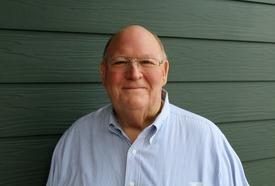Living The Lifestyle - Monday 7/15/24

crewahl
Posts: 5,166 Member
This is a thread for everyone. If you're new to GoaD, or to weight loss, your questions and comments are always welcome. If you're maintaining, or a long-term loser, your thoughts on the topic may be just what someone else needs to hear. If you're reading this, join in the discussion!
Each weekday, a new topic is offered up for discussion.
Monday - crewahl (Charlie)
Tuesday – Wildcard
Wednesday-misterhub (Greg)
Thursday -imastar2 (Derrick)
Friday - Wildcard
Today's Topic: “I’m back”
We’ve all seen people leave and come back, hoping they can make it work this time and hoping they stay motivated. What’s your best advice to these people?
Each weekday, a new topic is offered up for discussion.
Monday - crewahl (Charlie)
Tuesday – Wildcard
Wednesday-misterhub (Greg)
Thursday -imastar2 (Derrick)
Friday - Wildcard
Today's Topic: “I’m back”
We’ve all seen people leave and come back, hoping they can make it work this time and hoping they stay motivated. What’s your best advice to these people?
1
Replies
-
Success in WW is related to your ability to recognize that you will be making an identity change...you are trading in your old "lifestyle" (at least related to food and exercise) for a new lifestyle, and there is no going back if you want to be successful.
The idea that "I'll just diet for a few months, take the weight off, and then go back to my old life and habits" is a recipe for failure.
So, then, I guess the real advice is to make small but steady changes that you can live with. Don't jump in with the idea of eating salads for every meal. Instead, figure out how you're going to make light(er) meals that you can enjoy for the long term. Don't plan to run a marathon if you're idea of exercise is parking at the far end of the parking lot. Instead, figure out how you're going to get your heart-rate up 3-5 times per week for 30' each time. Etc.
All of the above also means that you have to have patience. After all, if your making changes that will be with you for the rest of your life, what does it really matter if you lose 0.5 pounds per week versus 2 pounds per week. Heck, I bet those who are losing more slowly probably have more success in keeping the weight off!3 -
Tenacity succeeds.2
-
Steve @stevOmania I believe covered it all. I would add never, never, give up no matter what.
Keep checking in here or somewhere for accountability. Think slow and steady as she goes and do something positive toward reaching your goal each day.1 -
The only thing I have to add to all the good advice above is a little saying I like when you are trying to lose weight. It piggybacks off Steve's 0.5 vs. 2 pounds thought: "The number doesn't matter, only the trend".2
-
I think that mindset is one of the most important factors of all. Mindset and flexibility. If someone starts a weight loss program with the mindset that the rules are hard and fast; that you either succeed or you fail with no middle ground; that life doesn't happen; that your plan is written in stone; then you're doomed. If you keep your eyes on the prize, one day at a time, accept the results of each day for what they are and move forward in hope not despair, you're on the right road. Someone here said that the weight loss/management journey is a death march. I prefer to call it a life march. A favorite quote about failure and success is from Thomas Edison, "I haven't failed. I've just found 10,000 ways that don't work. For me the additive effect of small changes that work while jettisoning what doesn't work makes all the difference.1
-
Never quit. Very first thing I noticed at WW was the revolving door. I vowed not to get in it. I made goal and kept coming to the meetings. It was easy. Close to home. Having that official WI saved me. The other members mostly regarded me as nuts.
But over time I found there were a handful of others who made goal and kept coming.
Tracking long term. Don’t quit that either. Even though I did after 5 yrs. But when I made goal I figured if I stopped tracking then I was going to gain it back. So maybe it doesn’t need to be for life but don’t count on stopping that.
Tracking in the short term. Don’t stop that either. It made me nuts. “I went over my points so I said I can start again tomorrow. So since I was in the clear for tonight I ate an entire extra large pizza.” Where in the WW materials did it say to stop tracking when you blew up the numbers?
Make your program about things to do and do them. Don’t quit.3 -
Lots of great stuff here. 👍🏻 I think the only thing I would add is an echo of a point Count Curt used to make about priorities.
I’m convinced that people lose or manage their weight when it’s a high priority for them, and gain weight when managing their weight isn’t a priority. That doesn’t mean it has to be your only priority or an obsession, but it does mean that your food decisions need to consistently be made based on whether they will help you accomplish your goals. It’s easy to want comfort food, or to grab that pastry from the tray. It’s tougher to say, “I’d like that, but I know it moves me away from where I want to be rather than closer. I’ll pass.”
From a practical perspective it’s important to realize that while eating is frequently an emotional choice, managing your weight is a rational process. Food brings us pleasure in the moment, even if it’s not aligned with our longer term needs. If you can slow down your choices, you can give your mind a chance to lead instead of your appetite and opt for the delayed gratification of making a better choice. For example, when seconds or dessert or chips are offered, stop for five seconds and ask yourself questions like “How will the choice I make now make me feel tomorrow? Is this what I want, or is it only what I want right now?”
I think that overeating is generally a function of prioritizing the short term pleasure of a given food against the longer term impact on health. Certainly as a volume eater I’ve done that myself - and continue to do that from time to time. If I wanted to understand why I do that, I’d need some pretty intense psychotherapy to find a way to blame it my parents (which is the easy way out, since they’re not here to defend themselves.) I’ve gradually adapted to smaller portions, but it’s not because I’m happy with them; it’s a reflection of a change in my priorities. To do that, I have to see that the game is worth the candle; that NOT having carrot cake and weighing less is more enjoyable long term than having carrot cake. Essentially, I have to recognize that each of my (admittedly ongoing) unhelpful choices is paid for by selling off an otherwise enjoyable portion of my future.1




